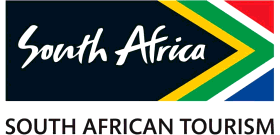 Minister De Lille Challenges South African Tourism Board’s Suspension of CEO Amid Governance Row
Minister De Lille Challenges South African Tourism Board’s Suspension of CEO Amid Governance Row
South Africa’s tourism sector faces renewed turbulence as Minister of Tourism, Patricia de Lille, has publicly rejected the South African Tourism (SAT) board’s decision to place its Chief Executive Officer, Nombulelo Guliwe, on precautionary suspension. Labeling the move as “unlawful,” the Minister’s intervention exposes significant governance concerns within SAT at a pivotal moment for the country’s tourism industry.
Minister de Lille’s statement, released on Thursday, asserts that the SAT board lacked the mandate to suspend its CEO because it was “not properly constituted” following the resignation of its chairperson, Professor Gregory Davids, on 31 July 2025. According to legal advice cited by the Minister, the absence of a chairperson rendered the board ineligible to take such a critical decision. “As of 31 July 2025, the South African Tourism Board does not have a board chairperson… This means the board in its current form is not properly constituted to take such a resolution,” de Lille emphasized.
The SAT board had earlier announced Guliwe’s immediate suspension, pending an investigation into allegations of misconduct. Plans were in place to appoint an interim acting CEO, with the Minister’s concurrence, to ensure business continuity while reaffirming SAT’s commitment to its role in promoting South Africa as a leading destination for both domestic and international tourists.
However, Minister de Lille’s sharp response highlights a deeper divide over governance and due process. She reiterated her commitment to “adherence to sound governance principles” and pledged to address the matter directly with the SAT board. The current dispute underscores the importance of stable, transparent leadership as South Africa seeks to maintain post-pandemic recovery momentum and bolster stakeholder confidence ahead of the peak travel season.
This conflict surfaces at a critical time for the tourism sector, which is working to rebuild international arrivals, stimulate domestic tourism, and restore industry jobs lost during the COVID-19 crisis. The uncertainty surrounding SAT’s leadership could undermine efforts to project South Africa as a reliable and attractive destination, particularly as global competition intensifies and travelers become more discerning in their choices.
For Africa’s travel and tourism professionals, the episode serves as a reminder of the vital role that governance and leadership stability play in destination management. The ability of tourism authorities to act decisively, transparently, and in accordance with legal and ethical standards is paramount to maintaining the trust of stakeholders and investors. As South Africa’s experience shows, internal disputes and leadership vacuums can divert attention from core objectives—such as marketing, product development, and partnership-building—just when the sector requires focus and unity most.
Looking ahead, all eyes are on the SAT board and the Minister’s next steps. The outcome of this governance standoff will shape not only the immediate direction of SAT but also the broader perception of South Africa’s tourism sector as it strives for recovery and renewed global relevance. For the continent’s tourism industry, this episode underscores the need for robust governance frameworks and clear succession planning—essential ingredients for resilience and sustainable growth in the face of ongoing change.
